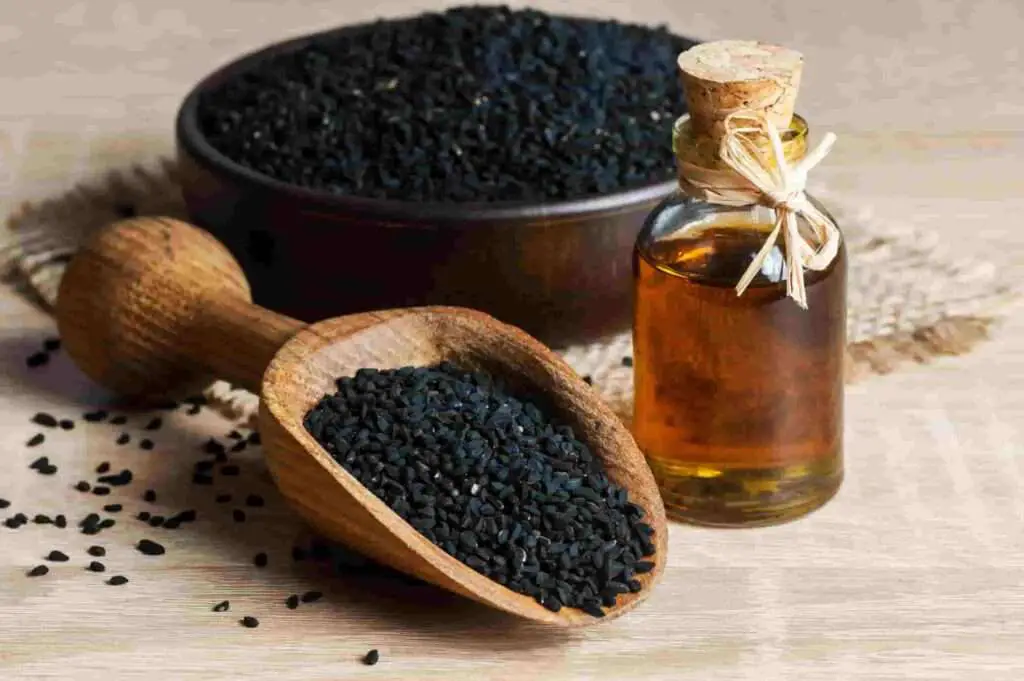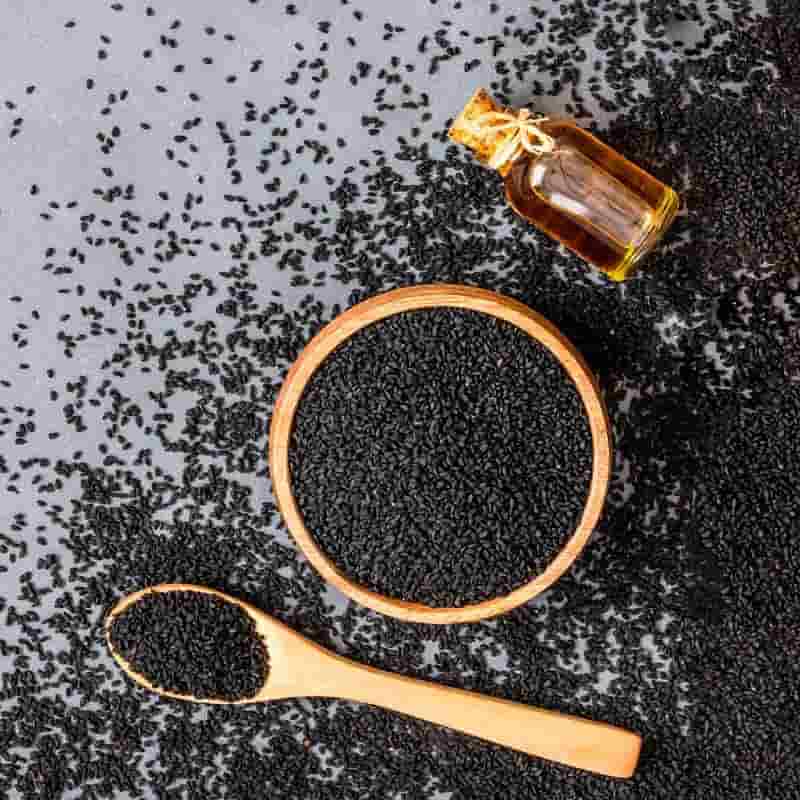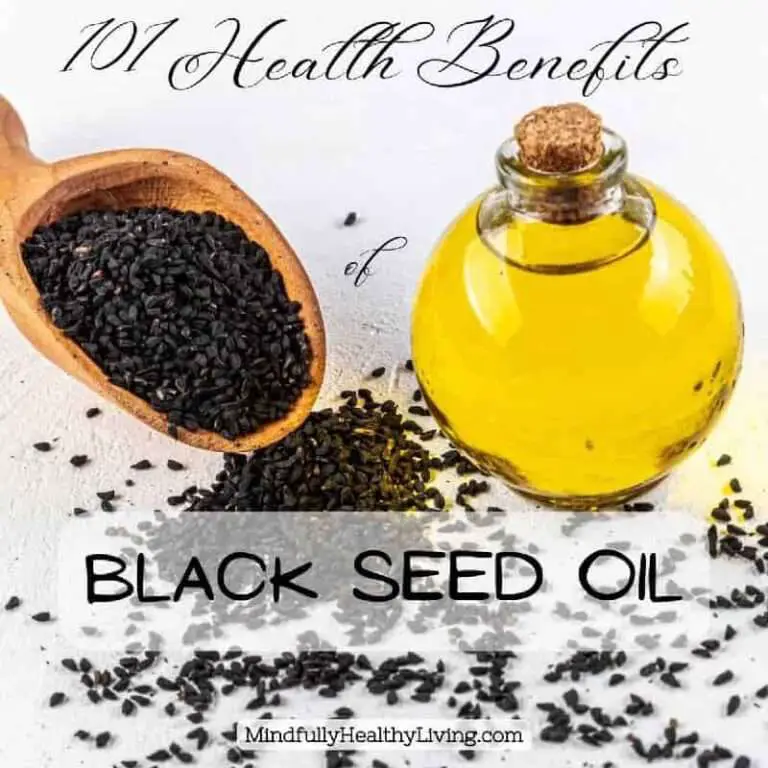What is Black Seed Oil Made From?
Black seed oil originates from the seeds of the Nigella sativa plant. These tiny black seeds are also known as black cumin.
What is black seed oil made from? A natural remedy with a rich history of use, has gained popularity for its potential health benefits. Extracted through a process of cold pressing, this oil retains its potent active compounds. People around the world incorporate black seed oil into their diets and self-care practices.
Its uses range from dietary supplements to topical applications, tapping into its anti-inflammatory and antioxidant properties. Recognized for its therapeutic versatility, black seed oil is a staple in traditional medicine and a growing subject of interest in modern health discussions.
Origin And Extraction Of Black Seed Oil
The history of black seed oil dates back thousands of years. Known for its potent health benefits, this oil boasts a remarkable legacy. It comes from the black seeds of the Nigella Sativa plant. Skilled artisans extract the oil through careful processes. Let’s dive deeper into the source and extraction techniques that bring this golden elixir to life.
Nigella Sativa: The Source Plant
Nigella Sativa, a small flowering shrub, produces tiny black seeds. These are the secret behind black seed oil. The shrub thrives in Eastern Europe, the Middle East, and Western Asia. Its seeds hide a treasure of nutrients and compounds inside their black shells.
Traditional And Modern Extraction Methods
For centuries, people have extracted black seed oil using traditional methods. Today, two popular techniques stand out:
- Cold-Pressing: This method keeps the oil pure and unaltered. No heat is involved, preventing nutrient loss. Seeds are compressed to release the oil.
- Solvent Extraction: This is a modern approach. It extracts more oil from the seeds. But, it often involves chemicals. Users should choose solvent-free products.
Black seed oil brings ancient wisdom and modern health together. It’s a natural product cherished across cultures. Whether cold-pressed or solvent-extracted, it holds a promise of wellness.

Key Components Of Black Seed Oil
Black seed oil boasts a complex blend of compounds. These come from Nigella sativa seeds. The oil is renowned for its versatility in health benefits. In this section, we’ll delve into the key components that make black seed oil a potent natural remedy.
Thymoquinone: The Active Ingredient
Thymoquinone stands out as the star of black seed oil. It’s the primary active ingredient. It has antioxidant and anti-inflammatory properties. Many believe thymoquinone is behind the oil’s health benefits. Here’s what makes thymoquinone special:
- Antioxidant effect helps protect cells from damage.
- Anti-inflammatory action reduces swelling in the body.
- May have anticancer properties, according to some studies.
Other Vital Nutrients And Compounds
Aside from thymoquinone, black seed oil is rich in several other nutrients:
| Nutrient | Benefit |
|---|---|
| Fatty Acids | Contribute to heart health. |
| Vitamins | Support immune function. |
| Minerals | Play a role in vital bodily functions. |
| Amino Acids | Are building blocks for proteins. |
Moreover, black seed oil contains:
- Phytosterols for cholesterol control.
- Essential oils for antimicrobial activity.
- Nutrient-rich plant compounds have overall well-being benefits.
In summary, black seed oil is a powerhouse of components. Each plays a role in promoting health. Knowledge of its constituents helps understand how it may benefit the body.
Physical Characteristics
Black Seed Oil, a treasure trove of health benefits, is as intriguing as it is therapeutic. Derived from the seeds of the Nigella sativa plant, it’s known for its wide array of uses in traditional medicine. To truly appreciate this natural elixir, let’s delve into its physical attributes.
Color
The hue of Black Seed Oil is distinctive. When held up to light, it reveals a stunning dark amber color with a golden glow. This rich color is a visual testament to the oil’s pure and concentrated nature.
Consistency
Upon touching, the oil feels silky and smooth. It boasts a medium viscosity, making it thicker than some oils like almond, yet not as heavy as others like castor oil.
Aroma Profile
The scent of Black Seed Oil is complex and unique. It carries a spicy and slightly bitter aroma, which can be quite potent for first-time users. Regular users, however, often grow to appreciate its characteristic fragrance.
Shelf Life And Storage Recommendations
For longevity, Black Seed Oil should be stored in a cool, dark place. Proper storage ensures the oil maintains its efficacy for up to two years. An airtight container is imperative to prevent oxidation, which can spoil the oil.
Health Benefits And Uses
Black seed oil, a natural elixir, boasts a range of health benefits. Extracted from the seeds of Nigella sativa, a plant native to Southwest Asia, this oil provides compounds valuable to our well-being. Let’s dive into some of its remarkable health benefits and uses.
Immune System Support
Regular use of black seed oil might boost your body’s defense mechanism. It contains thymoquinone, which is believed to help in fighting off infections. Countless individuals incorporate it into their diets for this protective effect.
- Enhances white blood cell activity, countering invaders
- May reduce the frequency of sickness
- Acts as an antioxidant, clearing the body of harmful substances

Anti-inflammatory Properties
With its anti-inflammatory properties, black seed oil might be a natural way to calm bodily inflammations. This is crucial as chronic inflammation is a root cause of many illnesses.
| Condition | Benefit |
|---|---|
| Joint pain | Reduces symptoms |
| Digestive issues | Alleviates discomfort |
| Respiratory conditions | Eases breathing |
Skincare And Beauty Applications
Beauty enthusiasts vouch for black seed oil’s skin benefits. It is a frequent ingredient in a wide array of skin care formulations.
- Fights acne due to antimicrobial properties
- May help in reducing scars and blemishes
- Moisturizes and nourishes the skin deeply
- Could slow down aging signs like fine lines
Safety And Side Effects
Black Seed Oil, a natural remedy with diverse benefits, also carries certain risks. Understanding safety and side effects is crucial. It is wise to be informed about the possible impacts on health.
Recommended Dosages
The dosages of Black Seed Oil can vary. Factors include age, health, and conditions needing treatment. Consult a healthcare provider before starting usage. Typically, adults may consume up to 1-2 teaspoons daily. This amount is considered safe for most people.
Potential Interactions And Contraindications
Black Seed Oil may interact with certain medications. It’s important to talk to a doctor before combining it with other treatments. Below are several critical elements to consider:
- Blood-thinning medications: The oil could potentially increase bleeding risk.
- Diabetes drugs: It might affect blood sugar levels.
- Immune suppressants: It may enhance immune function.
Pregnant or breastfeeding women should avoid Black Seed Oil. Insufficient data exists on its safety for these populations. Persons with blood disorders or recent surgery should also be cautious. In all cases, seek professional advice.
| Condition | Consideration |
|---|---|
| Pregnancy | Not recommended |
| Blood disorders | Consult with doctor |
| Recent surgery | Delay usage |
Quality And Selection
Understanding the Quality and Selection of Black Seed Oil is paramount. This oil derives from the seeds of the Nigella sativa plant. Yet, not all oils are equal. The quality depends on the source, extraction, and processing methods. Selecting a high-grade oil maximizes the health benefits you seek.
Criteria For Choosing High-quality Oils
When you’re deciding which Black Seed Oil to buy, consider the following:
- Purity: 100% pure oil, without fillers.
- Extraction method: Cold-pressed oil retains more nutrients.
- Origin: Seeds from certain regions may have higher potency.
- Colour: Rich, dark color often indicates higher quality.
- Smell and taste: Aromatic and spicy; not dull or stale.
Certifications And Labelling Tips
Labels and certifications can guide you to the best Black Seed Oil:
- Look for a label stating non-GMO and organic certification.
- Check for good manufacturing practices (GMP) on the label.
- Ensure the bottle has a batch number and expiry date.
- Analyze the label for any third-party testing or verification.

Frequently Asked Questions On What Is Black Seed Oil Made From?
What Are The Origins Of Black Seed Oil?
Black seed oil is extracted from the seeds of Nigella sativa, a plant native to Asia. The seeds are cold-pressed to yield the potent oil.
Can Black Seed Oil Benefit Skin Health?
Yes, black seed oil is known for its anti-inflammatory and antibacterial properties. It’s often used to improve skin conditions like acne and eczema.
How Does Black Seed Oil Support Immunity?
Black seed oil contains thymoquinone, which boosts the immune system. It helps fend off pathogens and supports immune health.
What Nutrients Are Present In Black Seed Oil?
Black seed oil is rich in essential fatty acids, vitamins B1, B2, B3, and antioxidants. These components contribute to its health benefits.
Conclusion
Discovering the origins of black seed oil reveals its ancient roots and natural processes. Extracted from Nigella sativa seeds, this potent oil offers numerous wellness benefits. Embrace the richness of history and health by incorporating black seed oil into your daily routine.
Unlock its potential and enrich your life with every drop.









